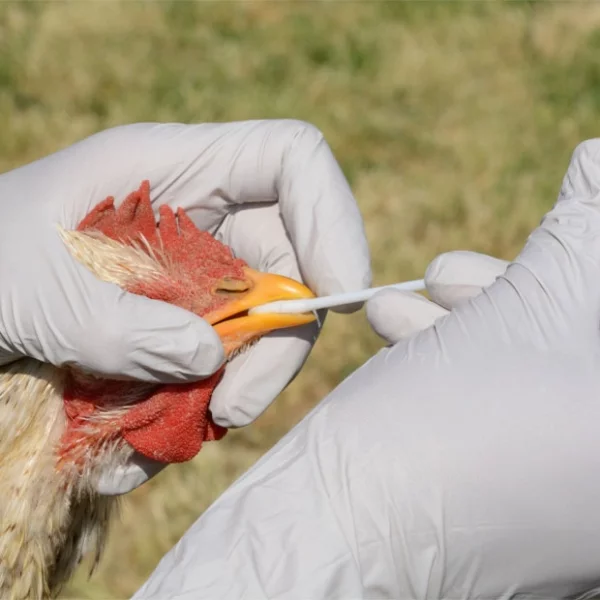Avian influenza in pets and backyard flocks

Reporting avian influenza
Bird owners should immediately contact their veterinarian or call the USDA toll-free hotline (866-536-7593) to report sick birds, including backyard flocks and migratory birds like ducks and geese.
The viruses that cause avian influenza (or “bird flu”) mainly infect and spread among wild aquatic birds, such as wild ducks, geese, and storks, and domestic poultry, such as chickens and turkeys. Backyard flocks (poultry or non-poultry) are also at risk, as are captive or pet birds with access to the outdoors, where they could be exposed to infected wild birds.
“Highly pathogenic” avian influenza (HPAI) viruses are of particular concern because they cause severe disease and death in poultry. H5N1 viruses are the most notable in this regard. Most wild birds don’t get sick from HPAI but can still circulate and carry the viruses wherever they migrate. The U.S. Department of Agriculture’s Animal and Plant Health Inspection Service keeps data on HPAI detection in wild birds and poultry (commercial poultry and backyard or hobbyist flocks) in the U.S., which you can use to see if there’s an outbreak of HPAI in your county.
Besides wild birds, can other animals and people catch avian influenza?
Certain mammals—including domestic cats and dogs—may become infected if they eat sick or dead infected birds, and there might be other ways the virus spreads. Still, the likelihood of cats and dogs catching HPAI seems very low.
Although people may become infected through exposure to an HPAI-infected bird, this happens only rarely, and typically involves infected poultry. The risk of people catching HPAI from infected cats or dogs is considered extremely low.
What are the signs of avian influenza in birds?
Early detection of HPAI in birds is important to stopping its spread. Infected poultry, and possibly pet birds, may show one or more of the following signs:
- Sudden death with no prior signs
- Low energy or appetite
- Purple discoloration or swelling of various body parts
- Reduced egg production, or soft-shelled/misshapen eggs
- Nasal discharge, coughing, or sneezing
- Lack of coordination
- Diarrhea
What precautions are recommended for owners of pet birds or backyard flocks?
Numerous cases of HPAI have been reported in backyard flocks in the U.S. Although pet (possibly caged) birds are unlikely to be exposed to wild birds, the rare possibility remains that pet birds could catch HPAI, too.
Owners of pet birds or backyard flocks are encouraged to stay informed about where HPAI is occurring. In regions experiencing outbreaks, certain precautions can help stop the viruses from spreading:
- Bring pet birds indoors or ensure areas where backyard birds are kept are fully enclosed, away from wild birds and their droppings.
- Wash or sanitize your hands before and after handling birds, and when moving birds between coops.
- Keep feed, drinking water, equipment, and other supplies secure, out of reach of wild birds or rodents.
- Prevent visitors from contacting your flock, and avoid visits to places where other birds are kept.
- Know the signs of HPAI, and immediately report any suspected infections to your veterinarian or state animal health official.
- Call your veterinarian first, before bringing your bird(s) in to be seen.
